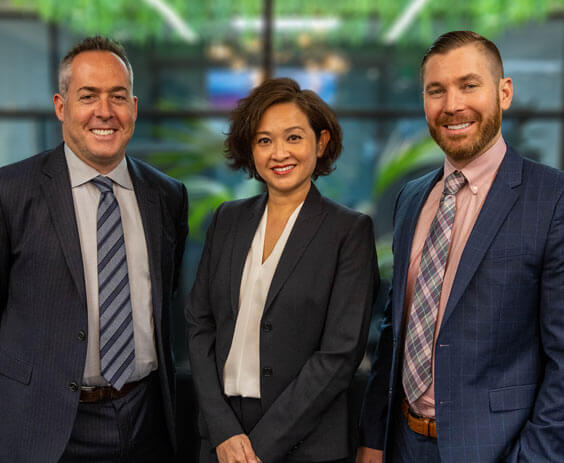Being involved in a car accident can be a stressful and overwhelming experience, especially when you’re unsure about what to do next. Understanding the car accident claims process is vital to ensure your rights are protected and you receive the compensation you deserve.
1. Immediate Actions After a Car Accident
The first moments after a car accident can be chaotic, but staying calm is key. Your actions right after the accident can significantly impact your ability to file a successful claim.
- Check for injuries: Before anything else, ensure everyone involved in the accident is safe. Call 911 if anyone is injured, even if the injuries seem minor.
- Ensure safety: Move your vehicle out of traffic if possible to avoid further accidents. Turn on your hazard lights.
- Document the scene: Take photos of the scene, including vehicle damage, road conditions, and any visible injuries. Collect contact and insurance information from all parties involved, including witnesses.
- Call the police: Filing an accident report is essential, even if the accident seems minor. The police report can be crucial when filing your claim.
2. Filing an Insurance Claim
After ensuring everyone’s safety and gathering the necessary documentation, the next step is to file a claim with your insurance company. Here’s what you should know about this process:
- Report the accident to your insurer: Most insurance companies require you to report an accident within a specified time frame. Failing to do so could result in the denial of your claim.
- Provide accurate information: Be honest and transparent when reporting the accident to your insurer. Avoid admitting fault or making statements that could be misinterpreted.
- Claim adjustment process: Once your insurance company receives your claim, an adjuster will evaluate the damages. This may include assessing the damage to your vehicle, medical bills, and other related costs.
3. Understanding Liability and Fault
One of the most critical aspects of the car accident claims process is determining who is at fault for the accident. The person found to be at fault will generally be responsible for covering the damages.
- Comparative negligence: In some cases, both parties may share fault. Texas follows a comparative negligence rule, which means you may still be able to recover damages even if you are partially at fault. However, your compensation will be reduced by the percentage of your fault.
- Determining fault: Insurance companies and legal professionals will use evidence such as police reports, witness statements, and accident reconstruction to determine who is at fault.
4. Medical Treatment and Documentation
Your health should always be a priority after a car accident. Even if you don’t feel injured immediately, it’s important to seek medical attention as soon as possible. Many injuries, such as whiplash or internal injuries, may not show symptoms right away.
- Seek medical care: After an accident, visit a doctor for a complete evaluation. Your medical records will play a significant role in your claim.
- Document everything: Keep records of all medical treatments, bills, and prescriptions. This documentation will help support your claim for medical expenses and compensation.
5. Dealing with Insurance Companies
Once the claim is filed, you’ll likely communicate regularly with your insurance company and possibly the other driver’s insurer. Knowing your rights and the tactics insurance companies may use to minimize payouts is important.
- Negotiations: Insurance adjusters may offer a settlement, but it’s often lower than you may be entitled to. It’s important to carefully review any offer before accepting it. If the settlement does not fully cover your medical bills, lost wages, or other expenses, it may be worth negotiating or seeking legal assistance.
- Avoiding lowball offers: Insurance companies often offer settlements quickly to avoid lengthy claims processes. While these offers may seem tempting, they may not cover all of your losses.
6. The Role of an Attorney in Your Claim
If your car accident involved significant damages, injuries, or disputes over fault, having an experienced car accident lawyer on your side can be invaluable. Here’s how an attorney can help you:
- Protecting your interests: A lawyer will help protect your rights throughout the claims process. They can handle communication with the insurance company and negotiate for a fair settlement.
- Maximising compensation: An attorney will assess the full extent of your damages, including medical expenses, lost wages, pain and suffering, and future medical needs.
- Litigation: If your case cannot be settled through negotiations, your lawyer will be prepared to take the case to court to ensure you receive the compensation you deserve.
7. The Settlement Process
After the insurance companies have evaluated the claim and considered all evidence, the next step is to settle. Settlement means agreeing to a compensation amount without going to trial. However, it is essential to ensure that the settlement is fair and covers all of your expenses.
- Settlement negotiations: Your attorney can help negotiate the settlement terms to ensure you’re not undervalued.
- Finalising the claim: Once a settlement is agreed upon, the insurance company will issue a check for the agreed-upon amount. If there are any remaining medical bills or other expenses, your attorney may help ensure the settlement covers them.
8. Filing a Lawsuit (If Necessary)
Sometimes, the insurance company may refuse a fair settlement, or the dispute over fault may be complex. If settlement negotiations break down, filing a lawsuit may be necessary.
- Filing a lawsuit: A lawsuit begins with the filing of a complaint in court. The court schedules hearings, and both sides have the opportunity to present their case.
- Court decision: If your case goes to trial, a judge or jury will decide the fault and compensation. However, most cases are settled before reaching trial.
9. What to Expect After Your Claim is Settled
Once your car accident claim is settled, there are a few essential things to keep in mind:
- Compensation: You should receive compensation for your damages, including medical expenses, lost wages, and pain and suffering.
- Medical liens: If you have outstanding medical bills, they may need to be paid from your settlement. Your lawyer can assist in handling these liens.
- Tax implications: In some cases, compensation for lost wages or other damages may have tax implications. It’s wise to consult a tax professional.
Ensure Safety First: Steps to Take Immediately After a Collision
The car accident claims process can be complicated, but knowing what to expect at each stage can help alleviate some of the stress. From ensuring your safety at the scene to negotiating a fair settlement, understanding the process and having the proper support is key to protecting your interests.

Kohan & Bablove Injury Attorneys was founded by three former defense attorneys who were tired of helping insurance companies and big corporations save money by paying the least amount possible to resolve claims. We wanted to open a law firm where we could use our years of experience handling the toughest and largest claims to benefit the individual. Each of us were tired of being cogs in the wheel that focused on paying the least amount possible to injured persons regardless of injuries or the validity of their claims.


